May 2021 Galactic News
GCC2021 and James Taylor Video Deadlines Extended, plus a whole lot more.
Hello all,
Welcome to the May 2021 edition of Galaxy News. The big news is that several deadlines for the 2021 Galaxy Community Conference have been extended, and the deadline for submitting James Taylor videos has been extended to this Friday.
And there are other upcoming deadlines too:
- ISMB/ECCB and BOSC 2021 abstracts are due this Thursday.
- Apply for the Galaxy Australia Variant Calling Workshops by May 12.
We also have
- open positions
- webinars, CoFests, workshops, community meetups, and other events,
- news about public Galaxy platforms,
- recent blog posts,
- training and doc updates,
- recent open-access Galaxy-related publications, and
- new releases.
As always, thanks for using Galaxy,
Dave Clements and Beatriz Serrano-Solano, Editors
Featured news

It's been a year since James Taylor passed away. To remember him, and mark his upcoming birthday (May 18) we are creating a community video, and we have extended the deadline for contributions to this Friday, May 7. We are asking you to tell us your favorite story about James in ~ 30 seconds. We will combine your clips into a video that will be prominently featured on all Galaxy-related sites.
Here is what we will need you to do by the end of Friday, May 7:
- Think of your favorite story/interaction/event involving James
- Pick a nice location and record the video!
- The video should be:
- in a high-resolution
- without background noise
- in a horizontal orientation (not vertical!)
- ≲ 30 seconds in length
- Deposit video file to your Google Drive or Dropbox folder (or any other location that would allow us to retrieve it)
- Send a link to the video, your name and location as you would like them to appear in the final video to: outreach@galaxyproject.org
Thank you all in advance and please feel free to invite other friends of James to participate.
Community News

The 2021 Galaxy Community Conference will be held 28 June through July 10. It will be virtual, affordable, and globally accessible.
GCC2021 will start with a week of online training. Training will largely use the GTN Smörgåsbord model: lectures will be prerecorded, with live help available on chat for the duration of the week. This model allows participants to learn at their own pace, avoids scheduling conflicts that are inherent with our usual multi-track training, and enables those with low bandwidth internet connections to fully participate.
Registration closes June 25
Registering before June 1 saves 50% off of the full rates. Registration discounts will be available to researchers from low and lower-middle income countries. For everyone else, registration are downright cheap too: the rates start in €15.00 for the training week and in €25.00 for the 3-day conference (plus VAT). The CoFest is free.
And GCC2021 is looking for sponsors too!

Several deadlines for the 2021 Galaxy Community Conference (GCC2021) have been extended. See below.
GCC2021 talk and poster/demo presentations will be selected from abstract submissions. We welcome submissions that use, implement or extend the Galaxy platform and ecosystem, including integrating and analyzing datasets in any research area, enhancing reproducibility in computational analyses, and fostering collaboration in scientific workflow development
Talk Abstracts: 17 May
Talks can be either long (15-20 minutes) or lightning (5-7 minutes). Talks will be pre-recorded, with live Q&A. Submit your abstract now.
Poster/Demo Abstracts: 14 June
(However, you are encouraged to submit your abstracts earlier, if at all possible.) Poster/Demos will be presented live at Remo.co tables and will not be limited to a single large PDF. They are an opportunity to fully communicate your work. Submit your abstract now.
GCC2021 Community Fellowships: 17 May
The Galaxy Community Fund is offering fellowships to students, post-docs, and other non-profit / academic / government researchers based in lower, lower-middle and upper-middle income countries who will benefit from attending GCC2021, and for whom the cost of registration is a barrier.
Fellowships will cover the full registration for any GCC2021 events awardees want to attend. Interested? Apply here by May 17.
Early Registration: 1 June
Early conference registration is open until 1 June.
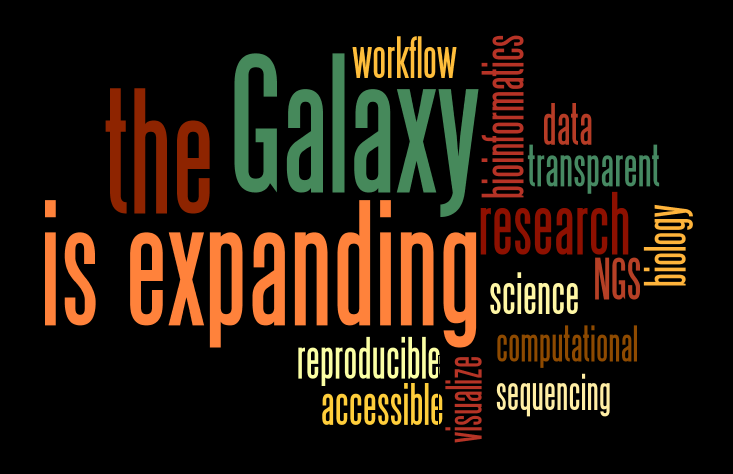
There are two new positions in the Galaxy Career Center, both in Rennes, France (and is due 1 June). There are also several previously posted positions that are still open, including several with the Galaxy Project in the US.
Event News
Despite COVID-19, there is still a lot going on, and most of it is online. See the full list of events. Some highlights:

Submissions due May 6
ISMB/ECCB 2021 is one of the largest bioinformatics conferences and every year Galaxy has had a significant presence. ISMB/ECCB is built from community building blocks, and this year that includes the Bioinformatics Open Source Conference (BOSC) (our 2018 and 2020 conference partner), as well as communities focused on high-throughput sequencing, mass spec, bioinformatics education, visualization, microbiomes, bioinformatics core facilities, and many others.
BOSC is a particularly good match for the Galaxy community. Topics include software development practices that promote open science standards and sharing of biological data and code, as well as approaches for building diverse communities.
Most of these are accepting talk and poster submissions through the ISMB/ECCB website, but BioInfo-Core is taking talk submissions here. All submissions are due May 6.


Our current webinar series focuses on Galaxy resources for several different communities. Webinars are held every other Wednesday at 10:00 Eastern US / 16:00 Central European time. The last two webinars are this month
Galaxy Resources for Tool Developers, May 12
Galaxy Resources for Sys Admins and Infrastructure Providers, May 26
Space is, um, unlimited! But sign up today anyway and we will send you a reminder.
Recordings of the two earlier webinars in the series are now available:
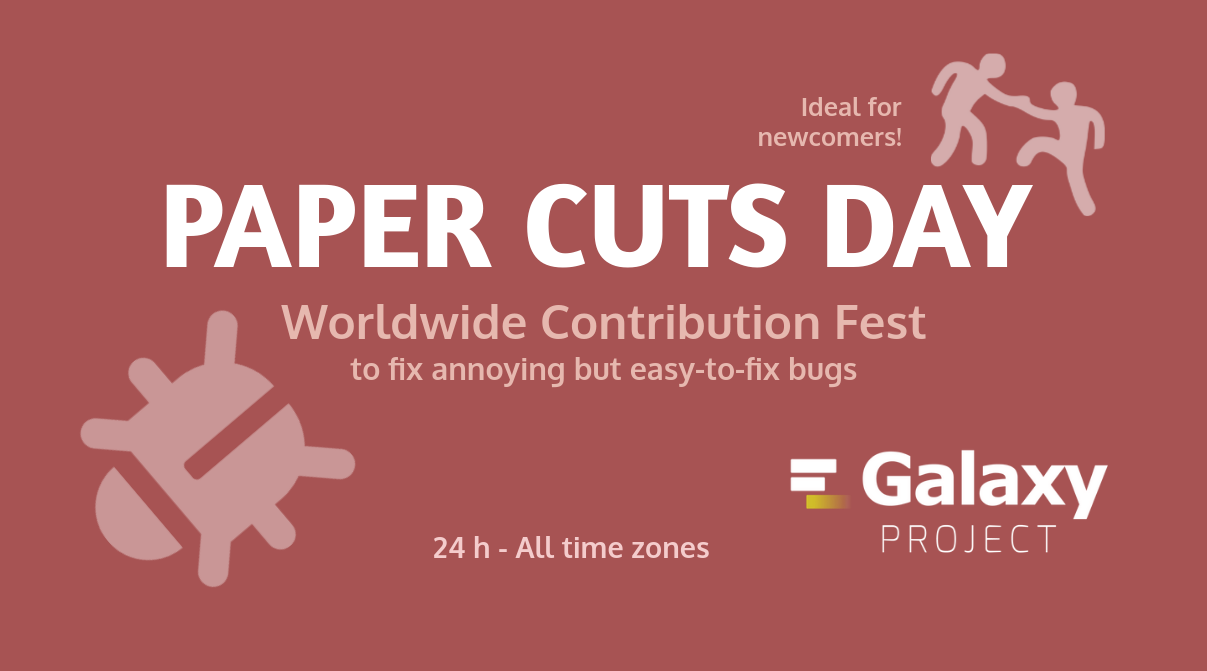
20 May, Online, Global
Please join us for the 8th Papercuts CoFest day and the Galaxy Training Network CoFest day on May 20 to help the Galaxy Ecosystem become a better place, and to help new contributors come on board.
We will be on Matrix for chat all day long, and each event will have 3 calls spread across the day. Please take advantage of both to communicate with your collaborators around the world.
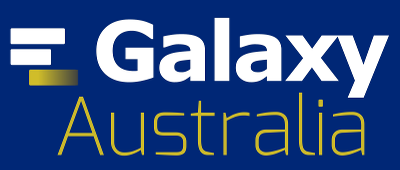
Apply by 12 May
This series of online workshops covers variant calling across the tree of life.
Variant calling in humans, animals and plants with Galaxy, 25 May
Viral variant calling with Galaxy, 26 May
Bacterial variant calling with Galaxy, 27 May
All 3 workshops will be run by Gareth Price and Igor Makunin.

25 May - June 11, Online
The workshop will focus on theoretical and practical aspects of using next generation sequencing (NGS) data for analyzing repeat composition of plant genomes. Special emphasis will be given to repeat characterization methods implemented in the RepeatExplorer pipeline, including practical training in using the pipeline. Participants are also encouraged to make short presentations of their research related to the workshop topic.
Register now. The workshop is free.

The next roundtable meetups will be:
May 13: Customizeable welcome and introduction page for new Galaxy users, Alex Ostrovsky
May 27: TBD
We still need a volunteer to lead a discussions on a topic of interest on May 27.

6 May, 14:00 CET
The call features a guest speaker, Amrita Cheema, Georgetown University School of Medicine in Washington DC, presenting her work in radiometabolomics. We'll also discuss GCC CoFest work, and training and standardization in metabolomics.
To know more about the Galaxy Metabolomics community, please subscribe to the mailing list or join the metabolomics Matrix channel.
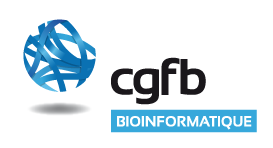
4-6 May, Bordeaux, France
Savoir rechercher des informations dans les banques de données. Maîtriser les outils d'analyse de séquences tels que les alignements et savoir interpréter les résultats. Maîtriser les formats et les analyses des nouvelles données issues du séquençage (NGS).
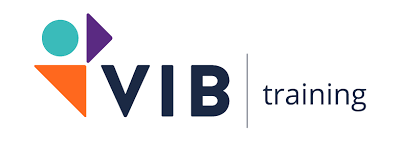
25 May, VIB, Online, Ghent, Belgium
An introduction basic concepts and tools from the ASaiM-MT workflow. ASaiM-MT provides a curated collection of tools to explore and visualize taxonomic and functional information from metatranscriptomic sequences.

28 May, Online
This year's Galaxy Netherlands meeting will take place on 28 May, from 10:00-12:00. Interested in meeting with the Dutch Galaxy community? Please add your name and join the conversation.
Galaxy Platforms News
The Galaxy Platform Directory lists resources for easily running your analysis on Galaxy, including publicly available servers, cloud services, and containers and VMs that run Galaxy. Here's the recent platform news we know about:

Protologger is an all-in-one genome description tool, aimed at simplifying gathering the data required for writing protologues. This includes providing taxonomic, functional and ecological insights. See the Protologger video for an introduction.
q2Galaxy (Alpha)
Starting with the 2021.4 release of QIIME 2 (see releases below), this Docker image is automatically updated as QIIME 2 is updated. It contains the full set of QIIME 2 actions as Galaxy tools, and is maintained by the QIIME 2 community. QIIME 2 is a next-generation microbiome bioinformatics platform that is extensible, free, and open source. QIIME 2 has extensive documentation, an online (and free) workshop, and a support forum. There is also a video describing how to launch the QIIME 2 Galaxy Docker image (on Windows!). Finally, this is an Alpha release. Please report any issues you notice on the forum.

Four videos about the Texas A\&M Center for Phage Technology's Galaxy server came out recently. They include three how-to videos, and a webinar by Jason Gill. The Videos highlight doing annotation with Galaxy and Apollo.

Protologger and CPT are not the only Galaxy platforms creating videos. We have gathered or created YouTube playlists for every Galaxy platform that we could find videos for. There are 52 videos about 15 different platforms, ranging from Galaxy Australia to Sciensano.
In preparation for the workshop Plant Transcriptome Analysis using Galaxy that took place in mid April, a new flavour of the European Galaxy Server has been set up, filtering the tools by their relevance to the plant research field.

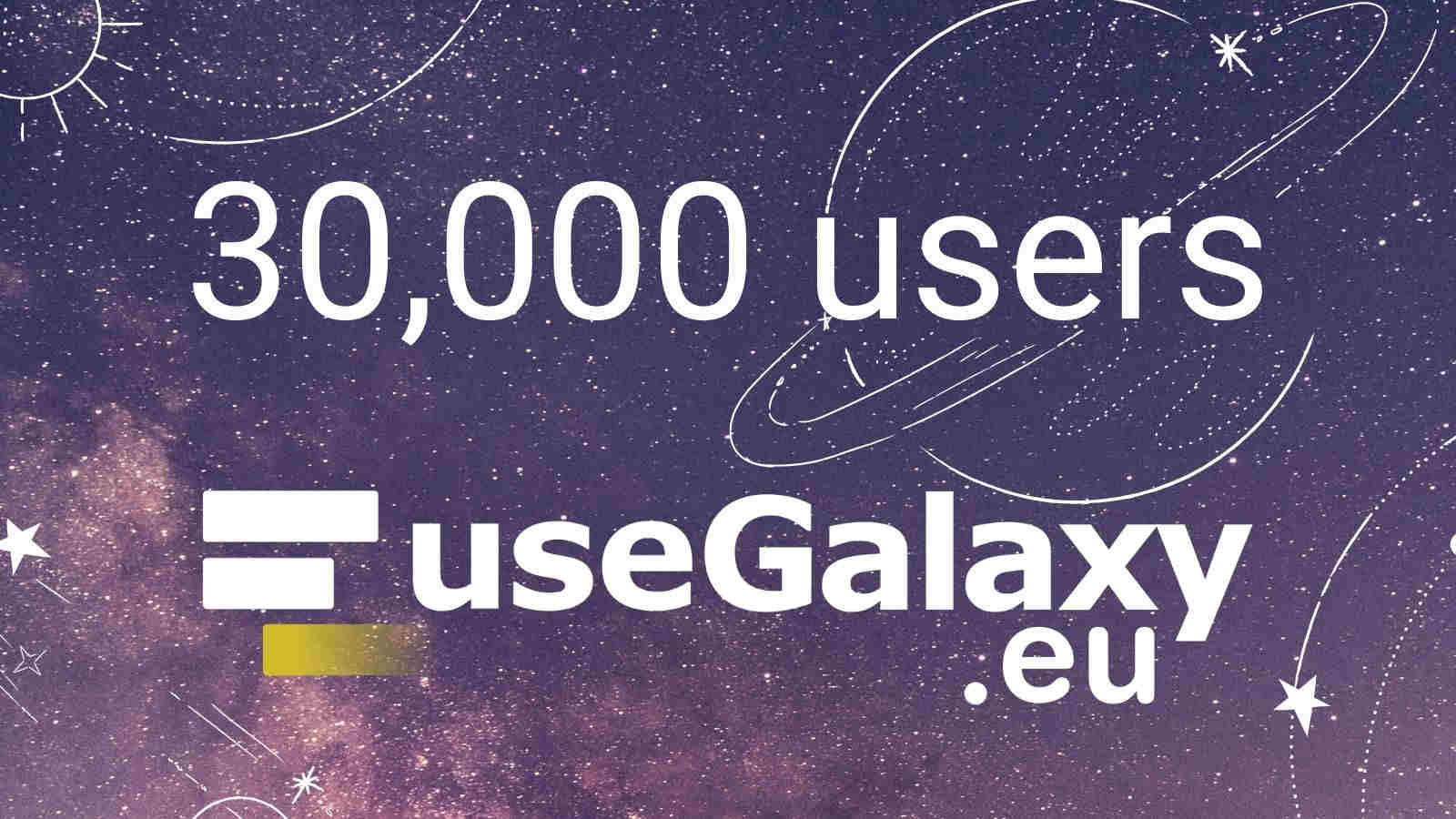
The European Galaxy Server has surpassed the 30,000 registered users, has around 3,000 active users per month and a total of 18 million jobs has been run since its opening in 2018.
UseGalaxy.* News
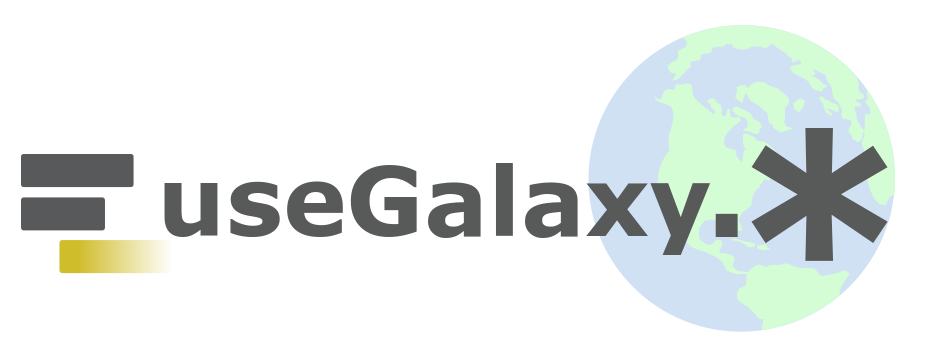
- The European Galaxy community is involved in several ELIXIR Implementation Studies.
- Lots of tool updates on UseGalaxy.eu and UseGalaxy.org.au.
Galactic Blog Activity
By Simon Bray, Wolfgang Maier, Beatriz Serrano-Solano and Björn Grüning
UseGalaxy.eu is now automatically collecting, and analyzing raw sequencing data published by the COVID-19 Genomics UK Consortium (COG-UK). This infrastructure is easily scalable and could be used in other large-scale SARS-CoV-2 sequencing projects.

By Mehmet Tekman, Beatriz Serrano-Solano
The outcome of the Plant Transcriptome Analysis using Galaxy workshop has been summarised in a report.
A huge shout out to all the participants, instructors and helpers for their support during the training week!

Doc, Hub, and Training Updates
By Marie Gramm, Dennis Lal group and Daniel Blankenberg
This tutorial is based on a proof-of-concept example given in Gramm et al. 2020. It uses SimText, a toolset for literature research to collect text from PubMed for any given set of biomedical entities, extract associated terms, and analyze similarities among them and their key characteristics in an interactive tool.

This slide deck about single-cell RNA-Seq experiments is now available as a video.

Publications
Pub curation activities are on a semi-hiatus right now but a few publications referencing, using, extending, and implementing Galaxy were added to the Galaxy Publication Library anyway. Here are the new open access Galactic and Stellar pubs:
Batut, B., van den Beek, M., Doyle, M. A., & Soranzo, N. (2021). In E. Picardi (Ed.), RNA Bioinformatics (pp. 367–392). Springer US. https://doi.org/10.1007/978-1-0716-1307-8_20
Schatz, M. C., Philippakis, A. A., Afgan, E., Banks, E., Carey, V. J., Carroll, R. J., Culotti, A., Ellrott, K., Goecks, J., Grossman, R. L., Hall, I., Hansen, K. D., Lawson, J., Leek, J. T., Luria, A. O., Mosher, S., Morgan, M., Nekrutenko, A., O’Connor, B. D., … Team, A. (2021). BioRxiv, 2021.04.22.436044. https://doi.org/10.1101/2021.04.22.436044
Releases
The 2021.4 release of QIIME2 includes a new interface, q2galaxy (see Platform News above), for generating Galaxy tool descriptions automatically from QIIME 2 actions. This means that as plugins are created and evolve, the QIIME 2 team can automatically generate complete Galaxy tools in a few seconds, rather than developing them by hand as is typically done.
Pulsar is a Python server application that allows a Galaxy server to run jobs on remote systems (including Windows) without requiring a shared mounted file systems. Unlike traditional Galaxy job runners - input files, scripts, and config files may be transferred to the remote system, the job is executed, and the results are transferred back to the Galaxy server - eliminating the need for a shared file system.


